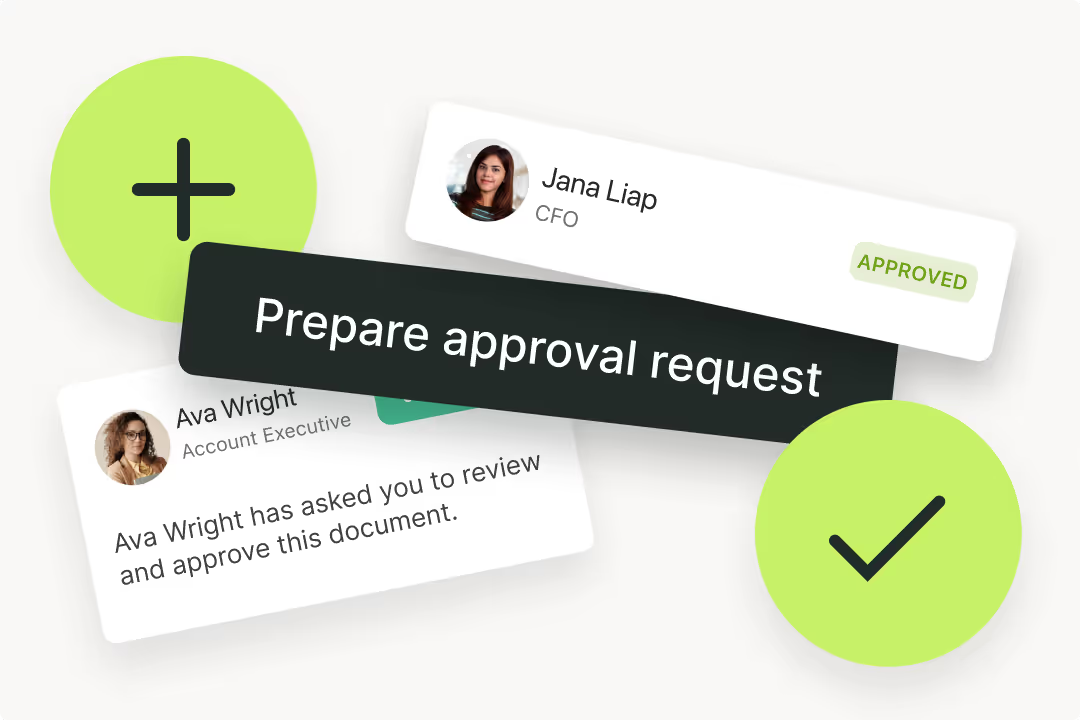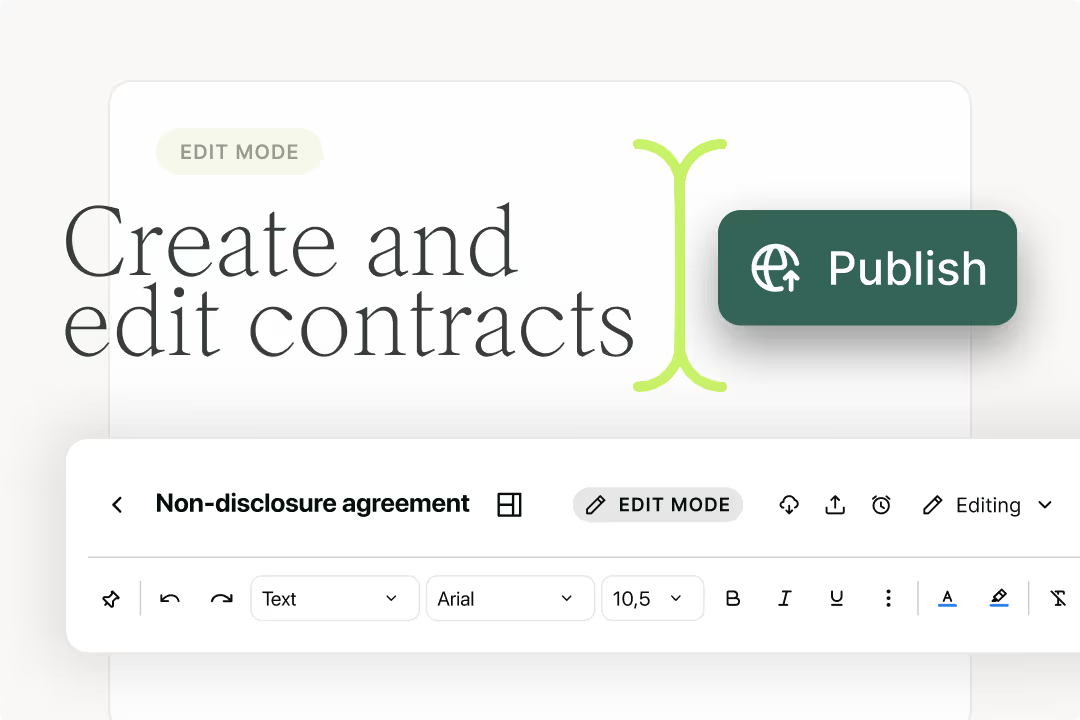Solutions
Customer Support
Resources
Contracts aren’t just legal documents. They’re packed with structured information that drives renewals, revenue, and risk decisions. That information is known as contract metadata, and when it’s captured properly, it transforms how teams manage, search, and act on their contracts.
Contract metadata is the term used to describe the data points that tell you about a contract. Contract metadata makes it easier to understand, identify and track contracts on their obligations without having to read through each one word for word.
But before we explore what exactly this means in the context of contracts, it’s useful to understand the origins of the word “metadata”, and how this type of contract data is understood.
Metadata is defined as data that provides information about other data.
The easiest way to understand this definition is to understand contracts as a form of data, and metadata as the data stored and captured to tell you about those contracts.
Historically, metadata was used as a way to identify and organize resources in libraries and digital databases. Examples of the metadata captured for a digital file would include the author, the time and date of creation, the size of the file and the location in which it was stored, for example.

When you apply this to the context of contracts, metadata simply means data that tells you about specific characteristics of your individual contracts. Depending on what data you capture, contract metadata can be anything from who created the contract to who the named parties are, and when the commencement date is.
Before we cover how businesses like yours can capture their contract metadata, let’s first establish what contract metadata you should be looking to capture in the first place. Below are some common examples of contract metadata.
One common example of the contract metadata captured by businesses is information about who owns and interacts with the contract. For example, businesses might track:

Key dates within the contract are another example of important contract metadata. For example, it’s common to capture:
It’s also common for businesses to track details about the nature of the contract, the value it provides to the business. This is usually measured using the following contract metadata:
Ultimately, you should be tracking any data points that provide useful insights into your contracts, or that allow you to organize contracts and monitor them more efficiently.
While these will differ depending on the type of contracts being managed and your company’s specific needs, the examples listed above are a great starting point.

Contract metadata is useful because it enables legal and business teams to gain valuable insights into their contracts. However, like most data, it’s only useful if it’s captured and presented the right way.
If displayed and organized effectively, contract metadata can provide the most important dates, numbers, and details about a contract without contract managers to read every single contract line by line to find this context.
If captured and processed effectively, contract metadata makes your contracts fully searchable. This enables you to do a few things.
Large or scaling businesses can process hundreds of contracts every month. If contract metadata is captured and presented in the right way, businesses can gain visibility into all of these contracts without having to jump back and forth between Word docs and PDFs to find the information.
Using a contract management solution like Juro, businesses can review all of their contract data in a customizable contract dashboard instead.
Capturing contract metadata also makes it easier to track your contractual obligations because this data can provide visibility into when these obligations are due and who is responsible for fulfilling them.
This helps to ensure contract compliance and avoid a breach of contract from happening by ensuring deadlines aren’t missed.
Contract metadata can also be used to provide key insights to internal and external stakeholders if you have the right contract analytics and contract reporting functions in place.
For example, contract metadata can be used to measure success against legal department KPIs, or even provide an indication of the health of the business when you look at contract metrics like missed renewals and contract value.
Another example of this is how contract metadata can be used to inform potential investors conducting due diligence. This aggregated data can paint a detailed picture of the value your commercial contracts bring to the business, and how much contractual risk your business carries.
Different companies capture their contract metadata in different ways, often depending on the maturity of their contract management process.
Some businesses will have automated processes for capturing and storing contract metadata. Others won’t have started capturing the data at all. Let’s talk through a few of the different processes businesses use to capture contract metadata in 2026, from the least efficient to the most efficient.
It’s common for businesses to capture contract metadata in a contract management spreadsheet. This usually lives in Excel or Google Sheets.
Each time a contract is created, the contract owner manually inputs all of the contract’s metadata into a spreadsheet. That way, there’s a single source of truth for contract metadata.
The main problem with this approach is the time and effort involved in keeping it up to date. There’s a lot of manual contract admin involved in maintaining a sheet like this, and there’s also a lot of scope for costly mistakes.
As a result, many contract management spreadsheets become a burden for in-house legal teams, particularly as their company and contract volumes scale.
The second option is a lot more efficient since it automates the process of data collection and aggregation.
Rather than manually extracting the metadata from contracts and inputting this in a sheet, a contract automation tool like Juro will capture and collate this contract metadata automatically for you.
All you need to do is define which smartfields you want to use to capture your contract metadata and add these to automated contract templates. Every contract created in Juro using these templates will then have its contract metadata captured and compiled automatically.

This contract metadata is then pulled into contract dashboards that you can customize, query and filter to find the information you need about your business contracts.
But what if you haven’t started capturing your contract metadata yet? Well, it’s never too late to start.
If you’re tracking your contract metadata manually in a spreadsheet, this can be uploaded to Juro quickly and easily using a CSV file. If you’re not tracking it at all, you can migrate your contracts to Juro and let our team tag your contracts for you. You can find out more about these two processes in this guide to contract migration.
Gain instant visibility into your contracts with Juro's data-rich contract management software. Businesses that use Juro can:
To find out more about how Juro captures contract metadata, and what you can do with it, fill in the form below for a personalized demo.

Lorem ipsum dolor sit amet, consectetur adipiscing elit. Suspendisse varius enim in eros elementum tristique. Duis cursus, mi quis viverra ornare, eros dolor interdum nulla, ut commodo diam libero vitae erat. Aenean faucibus nibh et justo cursus id rutrum lorem imperdiet. Nunc ut sem vitae risus tristique posuere.

